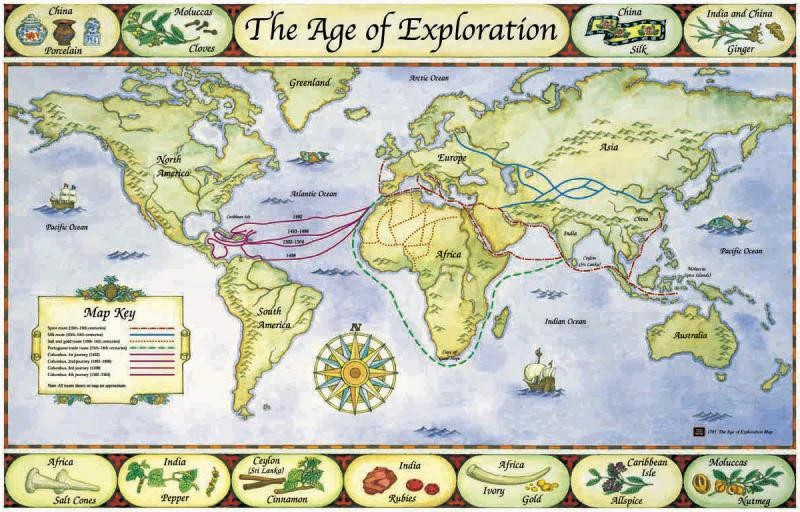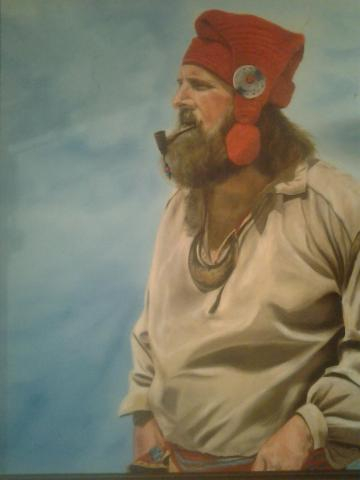Productive Exploration In Wellness Coaching

How can we tell if we have or have not done enough exploration with a wellness coaching client? Inadequate exploration usually results in poorly selected and set goals. In the rush to do “goal-setting” clients sometimes do so without considering all aspects of their life, health and wellbeing first. Many times I have seen a client insightfully discover that a key component of their challenge in losing weight is actually their social isolation. Until we explored their social and work relationships they thought we would simply be working on helping them to become more physically active and eat better.
Adequate exploration means coaching your client to look at their life three-hundred and sixty degrees – full circle! Wellness Mapping 360°™ "Wellness & Health" Coaching Model Simple tools of exploration like “The Wheel of Life” help clients realize how truly holistic wellness is. Taking the time to coach clients around the interconnections of the different areas of their life often pays off in more accurate selection of areas to work on and therefore actually saves time in the long run.
The Power Of Story
Our client’s “story” needs to be heard, honored, and understood. When clients don’t feel “heard”, they either elaborate further and further, or they clam up, withdraw, and perhaps drop out. Great coaches demonstrate excellent listening skills and show warm, empathic coaching presence as they hear the client’s story. Acknowledgement, validation and empathy pave the way to both building the relationship and establishing awareness of the client’s life as it is today.
Yet, we can perseverate on exploration! Clients often feel the need to fill us in on tremendous detail. Their thoughts, as they speak, lead them from one related detail to another and before long the coaching session is expiring and we really haven’t done much “work”. The “Chatty Cathy” sort of client talks and talks, often connecting their sentences and phrases with drawn-out “Ummmm’s” making interruption very challenging for the coach. Sound familiar? Or, the client engages with the coach in a lively conversation that seems like it should be productive, but never really delivers on that promise. Often, what is going on is that the client is simply conveying what they already know.
Effective exploration is when your client is fully and thoughtfully engaged. It's when they are curious and want to understand themselves and their lives and behavior more. It's when they want to Explore a new perspective, discover new insights!
 Real EXPLORATION is when you are exploring NEW LANDS, not just taking a walk in your neighborhood! Clients often use a lot of coaching time informing the coach about every tree, bush and rock in their neighborhood (rehashing things THEY already know). Effective exploration is when we say to the client, "How about we go someplace new? Let's go on a journey!" Coaches help people look at the old neighborhood with “new eyes”, and yes, that is the close-to-home aspect of exploration. However, more serious growth usually takes place somewhere less familiar, perhaps even someplace riskier.
Real EXPLORATION is when you are exploring NEW LANDS, not just taking a walk in your neighborhood! Clients often use a lot of coaching time informing the coach about every tree, bush and rock in their neighborhood (rehashing things THEY already know). Effective exploration is when we say to the client, "How about we go someplace new? Let's go on a journey!" Coaches help people look at the old neighborhood with “new eyes”, and yes, that is the close-to-home aspect of exploration. However, more serious growth usually takes place somewhere less familiar, perhaps even someplace riskier.
 Some international travelers never stray from the well-worn resort areas, or don’t even travel to a country that doesn’t speak their own language. Other than many trips to Canada, my first time “overseas” was to dive alone into the heart of Bangkok, Thailand. Talk about an adventure! Yet, it’s often on such adventures that we are stretched in new ways resulting in growth we never expected. You, the coach, need to become comfortable with being uncomfortable. When you exude more confidence in new territory, your traveling companion client will feel safer and allow themselves to proceed while feeling uncomfortable as well.
Some international travelers never stray from the well-worn resort areas, or don’t even travel to a country that doesn’t speak their own language. Other than many trips to Canada, my first time “overseas” was to dive alone into the heart of Bangkok, Thailand. Talk about an adventure! Yet, it’s often on such adventures that we are stretched in new ways resulting in growth we never expected. You, the coach, need to become comfortable with being uncomfortable. When you exude more confidence in new territory, your traveling companion client will feel safer and allow themselves to proceed while feeling uncomfortable as well.
“Life is an adventure, it’s not a package tour.” Eckhart Tolle
The probability of our clients sailing into unchartered waters is vastly improved when they have a traveling companion, and preferably a trusted professional guide. In a way, we might all become better coaches if we fancy ourselves as “adventure guides”! To do so might mean getting some adventurous miles under our own belts. No need to book that flight to Thailand or the Amazon. Your own exploration is right where you know it is, in the land of your own personal growth. You might not need to jump into years of therapy and confront your shadow side, but simply ask yourself, “What will stretch me?” Your own Personal Wellness Foundations is rooted in your own Personal Growth.
 Hudson's Ship "Half Moon"
Hudson's Ship "Half Moon"
Then, as you work with your client you might ask yourself, “Are we really exploring here?” You might imagine you and your client like the famous explorers in history; Vasco da Gama, Henry Hudson, Daniel Boone, etc. They were all looking for new lands, and, importantly new routes to get to places that they knew existed. Henry Hudson and his crews jammed their way through artic ice again and again searching for the fabled “Northwest Passage” that would lead them to Cathay (China). They never made it to the Orient, but in the process they opened up the great land of Canada. Sometimes exploration in coaching helps our clients to discover their own passage, their own route that can lead them to the life they truly want to live.
From “Patient” to “Client”
Part of what keeps clients stuck “in the neighborhood” of their familiar lives is the patient role that they have learned well. As a patient I believe in telling my healthcare provider as much accurate information as I can about my conditions, my current health status, etc., so that they can develop an accurate diagnosis and recommend the best course of treatment. This works great when I am in this professional medical consultation situation. Coaching, as we know, works differently.
Part of building the coaching alliance is helping our clients learn how to become “clients”! We can explain how coaching works and ways in which we will be of value to our clients. As we do so we can make a distinction between how the medical consultation works and how things proceed in coaching. After this introduction we will most likely find that we will need to repeatedly coach with the client in such a way as to remind them that we, the coach, don’t really need all the details. Our job is to help the client work with the client’s own situation by facilitating the coaching process with them.
Exploring Laser Style
As I teach our Real Balance LASER COACHING CLASS I’m seeing how vital effective exploration is to time efficiency. The techniques of laser coaching really pay off by helping the client to stay focused, on track, and relevant as they share their story. Also, if it is REAL exploration, it's NEW territory, not the time-consuming conveying what the client already knows (that's the "walk around the same old block"). When we are working in areas the client finds productive to explore they are more engaged, more satisfied and we cover ground more quickly. Insights help us spring forward with new behavioral experiments and we see progress.
 Setting Sail Or Blazing A New Path In The Wilderness
Setting Sail Or Blazing A New Path In The Wilderness
So, what does ineffective and effective coaching exploration sound and look like?
INEFFECTIVE EXPLORATION
• Client energy is low, even monotone in voice
• Or, client energy is fine, even anxious, speech may even be rapid
• The same ground gets “plowed” again and again
• Tangents and minutia prevail
• The client tend to stick to “favorite” topics (e.g. what to eat)
• “Drilling down” into details never “strikes oil” (we don’t gain insights, only more details)
• Client may be giving the coach what the client thinks the coach wants to hear
• The coach finds it hard to “forward the action”
• May feel like “hard work”, but is more exhausting than rewarding
EFFECTIVE EXPLORATION
• Client energy is strong and engaged
• There is a curiosity that the client shows about their own life, behavior, beliefs, etc.
• Challenges the client
• Asks about the relevance of what is being discussed
• Asks the client if they are receiving real value out of the current discussion
• Stimulates new ideas, insights, connections, potential solutions
• Helps clarify values and beliefs
• Draws upon what has worked in the past
• Experiments with new perspectives
• Can tap into body-wisdom of both the coach and client
• Includes “process coaching” where feelings may be explored and emotions processed
• Encourages looking into new topics
• Provides the substance for “possibility thinking”
THE SOUND OF EFFECTIVE EXPLORATION
Here are some questions, requests and phrases a coach might use to help make exploration more productive.
• “So, is what we’re talking about something you’re finding value in?”
• “That’s one perspective. Now tell me about the same thing, but from a completely different perspective.”
• “I understand how important the components of your diet are. Would you find it more productive to continue to explore what your are eating, or is there some other aspect of food and eating that we could benefit from looking at?”
• Summarize and then: “Hearing your long list of all the tasks and activities you are engaged in right now, what are you aware of?”
• “What question are you hoping I will ask you now?”
• “What question are you afraid I might ask you now?”
• “What would be a real stretch for you here?”
There are many more ways to speak with your clients about gaining new perspective. Encourage your clients to take Aikido Master and Conflict Expert Thomas Crum’s advice and “Get off your viewpoint, and try out a new point of view.” (http://www.aikiworks.com/products.html)








Only registered and logged in readers can leave comments.